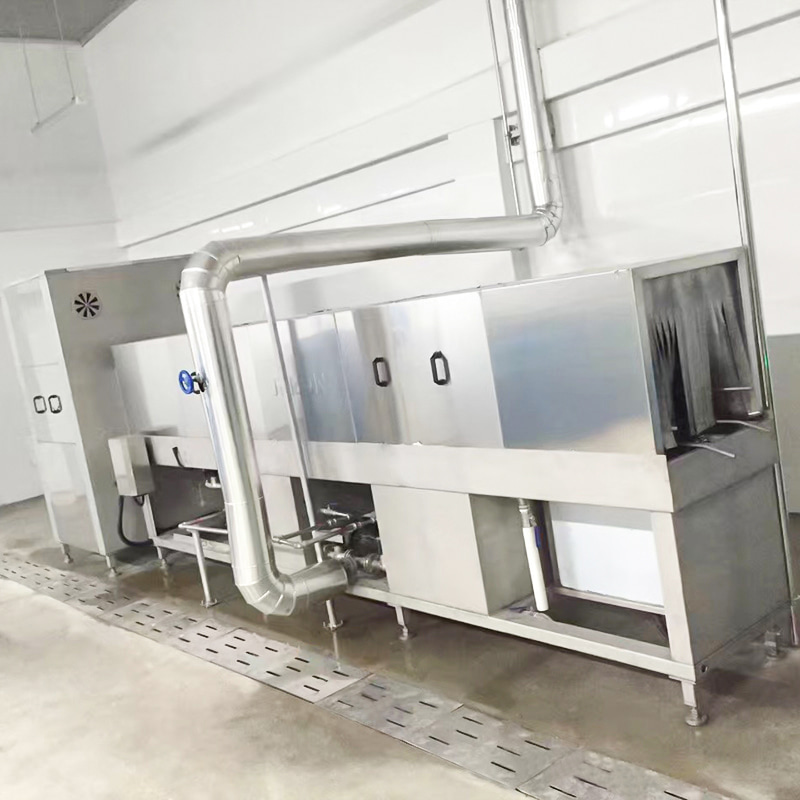The Need for Crate Washers
In industries where products are transported in bulk, crates often come into direct contact with goods, making them susceptible to contamination. For example, crates used in the food and beverage industry can carry bacteria and pathogens that could compromise the safety of food products. Similarly, in the pharmaceutical industry, clean containers are essential to prevent cross-contamination. Regular crate washing is necessary to ensure hygiene and maintain product integrity, but manual cleaning is often too time-consuming and labor-intensive. This is where crate washers become invaluable.
Types of Crate Washers
Crate washers come in several types, each designed to meet the specific needs of different industries:
Batch Crate Washers: Ideal for smaller operations or batch-based processes, batch crate washers clean a set number of crates in one go. They are highly effective and economical for small to medium-sized operations.
Continuous Crate Washers: In larger-scale industries, continuous crate washers are used for ongoing washing needs. They can process a constant flow of crates, increasing productivity and ensuring clean crates are available without delay.
Tunnel Crate Washers: These are designed for high-volume operations. Crates are placed on a conveyor belt and move through various cleaning stages, including pre-wash, main wash, rinse, and drying. This type is highly efficient for industries with strict hygiene requirements.
Key Features of Crate Washers
High-pressure water jets: These jets provide thorough cleaning by removing residue and contaminants from crate surfaces and crevices.
Detergent application: Many washers include detergent cycles that ensure a deep and sanitary wash.
Temperature control: Hot water is often used to enhance cleaning efficiency and sanitize crates, meeting hygiene standards.
Automated cycles: Advanced washers offer programmable cycles, allowing businesses to customize cleaning parameters based on crate type and contamination level.
Benefits of Using Crate Washers
Hygiene Compliance: Automated crate washers help companies comply with health and safety regulations by ensuring consistent, effective cleaning. This reduces the risk of contamination and improves product safety.

Labor Efficiency: Manual crate cleaning can be time-consuming and labor-intensive. Crate washers streamline the process, allowing employees to focus on more strategic tasks, ultimately saving labor costs.
Environmental Sustainability: Modern crate washers are designed with water and energy efficiency in mind. They recycle water within the system, significantly reducing water waste.
Product Longevity: Regular cleaning using automated washers prevents crates from degrading due to residue build-up, thus extending their service life and reducing replacement costs.
Applications in Various Industries
Crate washers are indispensable in industries where cleanliness and hygiene are critical. In the food industry, they help prevent bacterial growth that could affect product quality. In logistics, they ensure that crates used for transporting different products do not cross-contaminate. Additionally, in the agriculture sector, crate washers help to remove soil and residues, ensuring that crates are clean for the next use.





 English
English русский
русский Español
Español عربى
عربى










